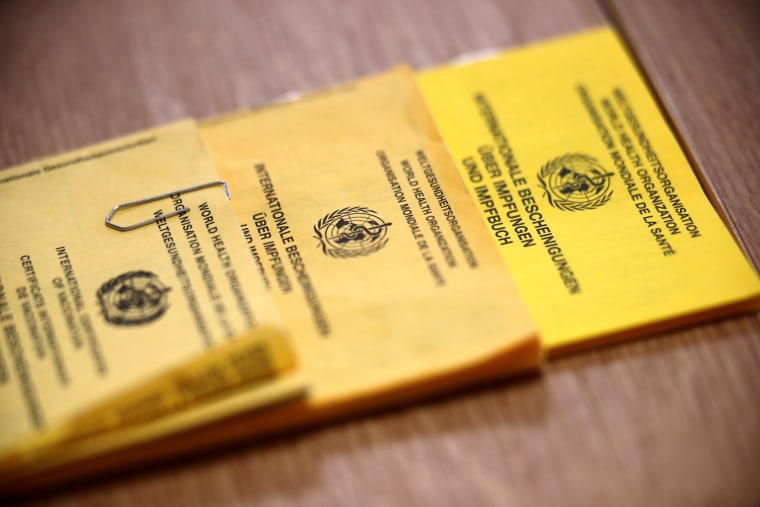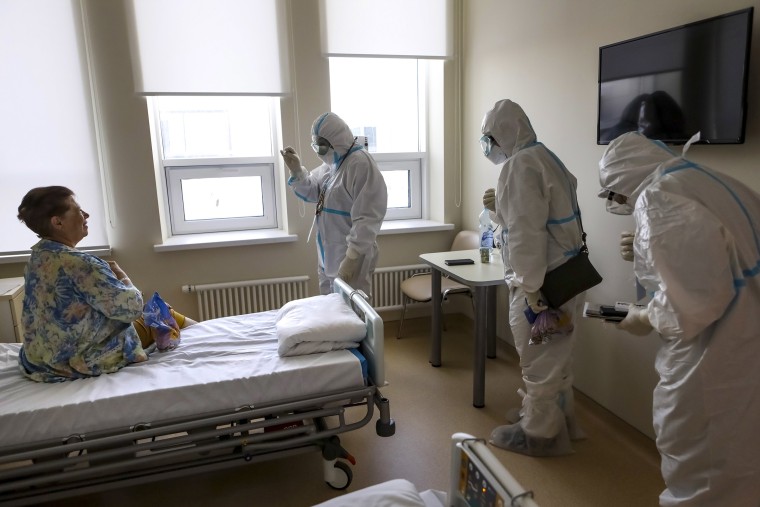Russia's death toll from Covid-19 could be three times higher than previously thought, according to one of the country's leading politicians.
New data released Monday by the Russian statistics agency Rosstat showed that the number of deaths from all causes from January to November had risen by 229,700 compared to the same period last year.
After the figures were released, Deputy Prime Minister Tatiana Golikova was quoted by Russia's Interfax agency as saying more than 81 percent of the increase was due to Covid-19 and consequences of the disease.
That means the virus-associated death toll is at least 186,000, or about three times previously reported. It would also give Russia the third-highest Covid-19 death toll in the world.
The country's official death toll, reported on a cumulative daily basis by the government's coronavirus crisis center, stood at 55,827 on Tuesday.

The number of deaths has previously been questioned, as Russia has the fourth-largest caseload in the world, behind the U.S., India and Brazil, but its official death toll is substantially lower than in those three countries.
Russia has so far stayed clear of a nationwide lockdown despite reports that hospitals around the country are struggling with the influx of patients, as the Kremlin hopes that the rollout of its Sputnik V vaccine will bring the epidemic under control.
Elsewhere, as the number of people getting vaccinations continues to grow, the world is, once again, watching the first people in the world to get the vaccine.
The first two patients in the U.K. to get the Pfizer-BioNTech vaccine, Margaret Keenan and William Shakespeare, were expected to get their second doses Tuesday to achieve full immunity.
Keenan and Shakespeare received unprecedented publicity this month as Britain became the first country to roll out a clinically approved vaccine.
Meanwhile, the U.K. reported a record number of new cases Monday, topping 40,000, as the government is struggling to contain the new variant of the virus that scientists believe could be 70 percent more transmissible.
Download the NBC News app for breaking news and politics
Over the weekend, the European Union rolled out a mass vaccination effort to get its 450 million people vaccinated as soon as possible, with health care workers and residents of care homes among the first to get the shots.
But there have already been some hiccups.
In northern Germany, eight workers in an elderly care home received five times the recommended dose of the BioNTech-Pfizer vaccine, Vorpommern-Rugen district authorities said in an online statement Monday.
Four have been admitted to hospitals for observation as a precautionary measure after they showed flulike symptoms.
"I deeply regret the incident," district administrator Stefan Kerth said in the statement. "This individual case is due to individual errors."
NBC News has reached out to Pfizer for further comment.
Some German districts declined to use vaccines they received over the weekend over suspicion that cold conditions were interrupted during delivery. The Pfizer-BioNTech vaccine has to be stored at ultralow temperatures to remain viable.
Meanwhile, China, where the virus first emerged nearly a year ago, has reported seven new cases in the capital, Beijing, where authorities have ordered the testing of hundreds of thousands of residents.
City authorities have already urged residents not to leave the city during the coming Lunar New Year holidays. China, which has so far reported much lower case numbers and deaths than many other countries, has canceled big gatherings, such as sports events and temple fairs. Cinemas, libraries and museums operate at 75 percent capacity. The government is also discouraging business trips.
The virus is also raising new concerns in South Korea, where 40 more coronavirus patients died in the previous 24 hours, the highest daily number since the pandemic began.
South Korea's previous daily high for Covid-19 deaths was 24, reported on both Dec. 21 and Dec. 22.
Some observers say the surge in deaths reflects an increase in cluster infections at nursing homes and long-term care centers where elderly people with underlying health problems stay.

